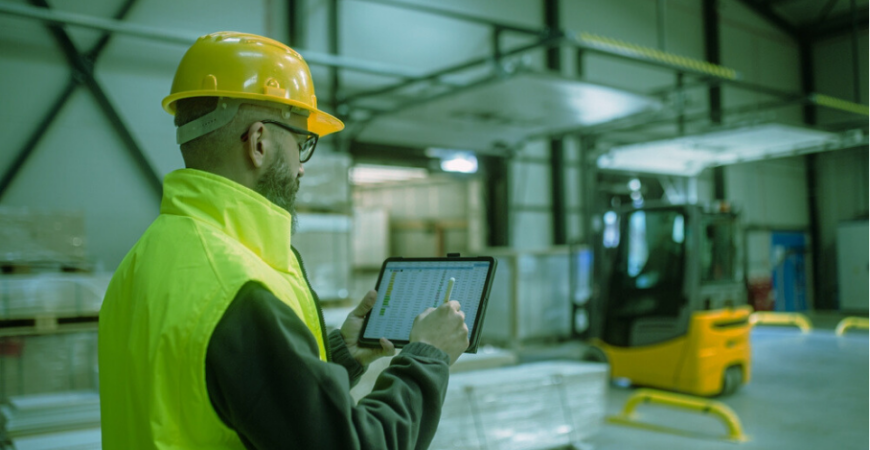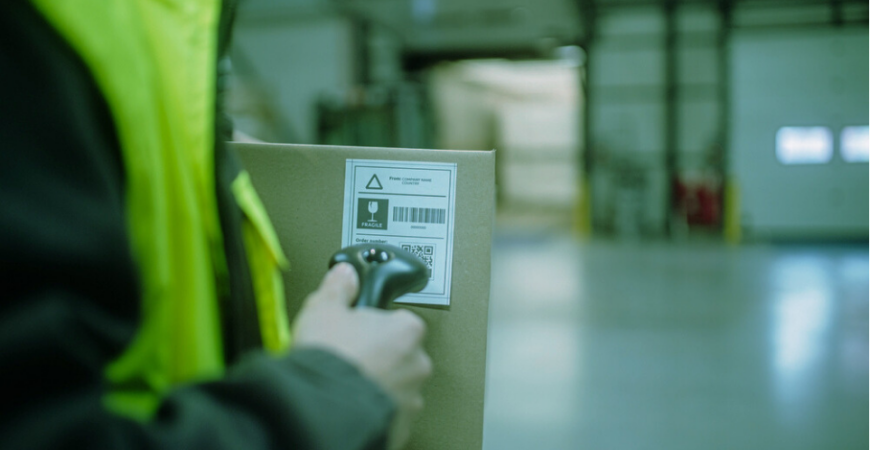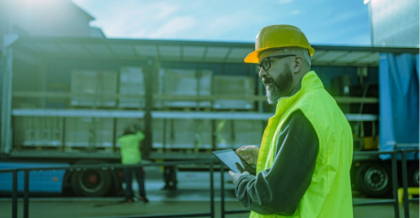Retail Logistics Functions in Supply Chain Management
What is Retail Logistics?
Put simply, retail logistics covers all of the processes that go into making sure your inbound and outbound products are moving through the supply chain system as smoothly and efficiently as possible. Companies that lack sufficient supply chain logistics in their staff will often prefer to partner with third-party logistics or 3PL professionals to help them ensure their goods get to market in a timely fashion.
Importance of Efficient Retail Logistics
Naturally, your retail customers will not be pleased if you fail to deliver the products they’re expecting per your agreement. They depend on you to supply the units they order without delay, with accuracy being top of mind when they receive each shipment.
Key Components of Retail Logistics
If you’re new to retail logistics, some key components include:
- Sourcing items for inventory
- Receiving products and then processing them
- Sending out inventory to fulfillment locations, such as smaller warehouses
- Fulfilling all customer orders
- Keeping track of orders and the status of your current inventory
Inventory Management
You can’t just place incoming units on the shelves randomly in the warehouse environment and then hope to locate them quickly as orders arrive. This underscores the importance of having a robust inventory management system in place, guided by trusted professionals who know how to keep inventory flowing smoothly.
Supply Chain Management
Anticipating breaks in the supply chain so you can have alternative sources for raw materials or finished items can have a serious impact on your company’s bottom line. For many, the most suitable approach is to work with 3PL experts to verify the supply chain is not just intact, but robust and able to help you meet customers’ needs.
Order Fulfillment
Fulfilling orders as quickly as possible helps you retain your current base of retail customers.
Transportation and Distribution
Sometimes it will make sense for your products to move out of one central location, such as when you sell to customers in a specific geographic region or a single state. Or, you may find it more efficient to work with a network of warehouses for a faster distribution system.
Challenges in Retail Logistics
Retail logistics presents several challenges that need to be addressed to ensure a smooth supply chain. One major challenge is accurately picking and packing products in the warehouse to optimize space and reduce shipping costs. Another is verifying the destination to avoid delivery errors. Ensuring that customers receive their orders on the expected delivery date is also crucial. These challenges can be mitigated by partnering with third-party logistics (3PL) professionals and leveraging advanced software and technology to streamline and control logistics processes.

Inventory Optimization
What’s the right ratio of items to maintain in your inventory? The answer to this question may vary quite a bit, depending on what season it is, shifting market forces, and changing customer preferences. With 3PL software in place to keep tabs on inventory ebb and flow, and to monitor any shifts in customer demand, you can achieve an ideal level of inventory, avoid wasting products that don’t sell, and make sure you have adequate supplies when demand surges.
Demand Forecasting
Your 3PL retail partners can assist you in forecasting customer demand. From holiday shoppers who are urgently ordering gifts for December delivery to college kids looking for products to use during spring break or families ordering a new food product that’s blowing up on social media, being able to accurately anticipate demand helps you stay ahead of the competition as well as delight your customers.
Last-Mile Delivery
How will your products get from their place in the warehouse to their final destination? Typically, there are delivery trucks or even cars driven by contractors. Pay close attention to your last-mile delivery efficiency. Some businesses are considering using autonomous vehicles to make it easier to move products to their retail customers.
Reverse Logistics
When customers refuse delivery or need to return an unwanted or incorrect item, you want to be able to process these packages as efficiently as possible. This is why you want professionals to handle reverse logistics tasks, to lower the costs of each return. In some cases, the products are destined for the recycling bin, while in other cases, you may be able to repackage them, or set products aside for repairs to then sell as refurbished units.
Strategies for Optimizing Retail Logistics
Some crucial strategies for boosting your retail logistics include modernizing your computer and software infrastructure, which allows for greater insight into all processes, such as through a logistics dashboard that you can consult and see what’s happening in the system, at a glance. Partnering with 3PL professionals is another solid strategy, especially when you want to outsource these key tasks.
Implementing Technology Solutions
In addition to setting up robust computer systems to handle the torrent of data that’s involved in 3PL services, you will want to consider using devices such as digital cameras, which help boost security in the warehouse, but also aid in automated picking and packing systems, to move your items more quickly out of the warehouse to reach your retail customers.
Consolidating your Tech Infrastructure

Sometimes companies have their branding solutions in place and are providing goods to a large customer base, but they are limited by an aging technology setup. Under such circumstances, it’s best to consolidate your tech infrastructure, so systems interoperate smoothly.
This may require you to ditch older software solutions in favor of a modern system that can connect to all the data you’re working with, from automated marketing to segmenting your customers into their appropriate demographics.
Partner with Logistics Specialists
If your organization does not currently have staff on hand to oversee your logistics efforts, it makes sense to partner with logistics professionals, such as the team at B&C Logistics.
B&C Logistics: Your Retail Logistics Partner
It’s crucial to have trusted partners to help ensure your supply chain processes function as smoothly as possible. The 3PL experts at B&C Logistics have years of experience assisting companies with their retail logistics requirements. Our team follows industry best practices for logistics and warehousing, for the most efficient fulfillment solutions. To learn more about our approach to fulfillment services, or to consult with us about a customized solution for your business, please get in touch with us today.

